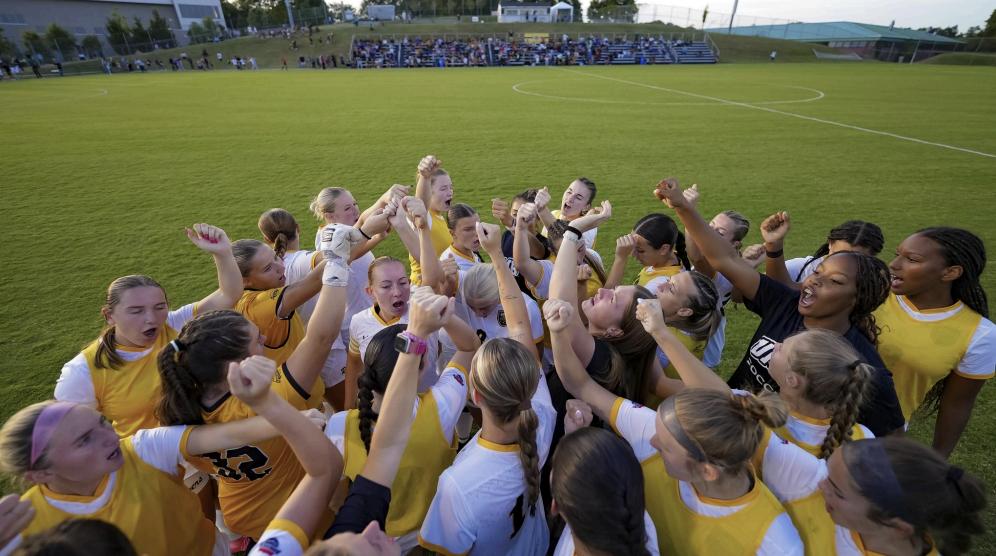In the 1970s, there began a push for more space in academia for Black people, particularly in America, which was surviving out of the “turbulent sixties” – a period marked by intense turmoil and social change but also one that saw people standing up against oppressive structures through collective power such as in the Civil Rights Movement.
However, dismantling oppressive behavior occurs in many places. One of the most potent places to do that is with academia. Academia has historically organized in ways that favor white history and its narrative- whether that is an excessive option for European History in High School or having a predominantly White faculty department. This disparity necessitated the aforementioned push for a Black Studies program, which espoused more academia and literature regarding Black history taught by Black people.
The Black Studies program started to come up in a lot of predominantly white schools in the 1970s and eventually, through the tireless efforts of the University of Maryland, Baltimore County’s Black students, staff and faculty, convinced the University Administration to establish the African American Studies Program in 1971 with Nigerian Political Scientist, Dr. Elechukwu Njaka as the Program Director. And on December 8th, 1972, The African American Studies B.A. Degree fully began for the 72-73′ Academic Year.
Fifty years later, the department — which in 1997 was renamed Africana Studies (AFST) to include the Pan-African and the African diaspora’s culture and experience — celebrated its long run with a three-day program celebrating the work done by the department throughout its years as well as care-taking for its future.
The three events occurred between November 9-11. They started with the distinguished W.E.B. Du Bois Lecture series in honor of William Edward Burghardt Du Bois, pre-eminent African-American scholar, author, academic and activist. Honoring his mission of academic education as a potent means for liberation, Universities across the country set up an annual W.E.B. Du Bois Lecture series. At UMBC, the series has now become one of the longest-running Lecture Series in any department, held almost every year since 1978 and featuring distinguished visionaries and scholars such as poet Sterling Brown and physicist Shirley A. Jackson whose breakthrough work on telecommunication changed the way we interact with each other today.
This year’s Du Bois Lecture theme focused on a UMBC homecoming. They featured two community-enriching visionaries, Dr. Christel N. Tempel, an M.A. Comparative Black Literature graduate of UMBC and Mr. Donald G. Murray Jr., faculty of the Africana Studies Department.
Beginning with Dr. Tempel’s Lecture, the audience could see the profound impact of her time at UMBC on her as she described, “UMBC is Home.” She explained that through her experiences, she conceived the ideas of agency in exile or isolation and how mythologizing a person, particularly in Black Cultural Mythology, can sometimes hide us from the whole picture of a human being.
However, she also focused on the power of mythology, focusing on how ” Mythmaking [in the right manner] can be an art form that produces the most beautiful form of art and prose.”
Her experience and eloquence in explaining such a complex topic came from the ideas she sourced during her time at the AFST department, owing them for the “seeds they have sown” and commemorating their achievements throughout the past fifty years.
Following this was an intermission that was radiated by the talented chorus of the UMBC Gospel Choir and Jubilee Singers as they sang the hymns of the Black National Anthem,”Lift Every Voice and Sing,” penned by NAACP leader James Weldon Johnson in the year 1900 as a hope for the liberation of all African Americans.
The second lecture, led by Mr. Donald G. Murray, focused on the past and future of Africana Studies and the application of the department’s work in life. He challenged the new students of the department to take all the knowledge and skill provided by the AFST department and use it to change their surroundings, to communicate and organize and most importantly, to exist with a community. As a recurring motif this week, his past experiences too informed the work he accomplished and his exposure to the African American experience not only at a communal level but also on a larger scale-shaped the way he experiences his life.
He wanted to connect to other members of his community and the work he did with the Africana Studies department helped him achieve his goals. In his own words, “Success is not determined by who you are but rather by what you do.”
On November 10th, a roundtable with AFST Alumni, Current Students and Former Faculty was held in the Albin O. Kuhn Library. Tucked away in the conference hall of the Seventh floor was a communion of people laughing, reuniting and forming new connections. Preceded by a highly well-detailed presentation accounting for the various phases and notable faces of the Africana Studies Department.
Everyone in that hall was connected- their origin and development came from the same department. So much of their community formed right here. At the beginning of the event, Professor Chair of the Africana Studies department and co-organizer Dr. Chuku remarked, “We always say that some products are made in Nigeria or USA. However, the presentation and this event are made in UMBC.”
The roundtable event got kicked off by a discussion with current students of the AFST department moderated by the faculty member, Dr. Tammy Henderson. In the panel, students of the AFST department got a particularly refreshing chance to talk about their community and department in an accessible and accepting manner, with no answer feeling like it was off the table.
For so many students such as Chidera Iwudyke, Senior CMSC Major and Africana Studies minor, the AFST degree in her repertoire influences every part of her in “how I sit in classes and function with other people. Sometimes when you are in those spaces with a lack of Black and Brown people. This degree and the department teach me how to be known in places, communicate with certain professors and advocate for myself and have a sense of pride.”
Opening up spaces for such conversation for students is very important as a conversation with Juelle Lee, Africana Studies major, revealed, “I love how interactive these roundtables were; it helps me hear other perspectives and also hearing perspectives of alumni, as well as being able to go home with my own experience.”
She added the importance of knowing, funding and attending Africana Studies classes, “It’s not [Africana Studies is not] general knowledge for everyone, but reducing it to a culture requirement is reductive because it is real life, it will impact you in how you move and perceive your life. It also helps you confront biases and realize that you may not be neutral sometimes, even if you think you are.”
The second roundtable, held by Assistant Professor Dr. Thomas Robinson, was initially conceived to include the critical former faculty members involved in the progression and development of the Africana Studies Department. However, many of them could not show up due to health and age reasons. Instead of omitting their presence, Dr. Robinson took particular time to talk about the four faculty members, Dr. Acklyn Lynch, Dr. Willie B. Lamousse-Smith, Daphne Harrison and the only present member, Mr. Donald G. Murray Jr.
An environment of fondness and love formed instantly with previous students laughing together about their trials and tribulations in the intellectually challenging classes, with Dr. Lynch and others cheering the work done by one of their first faculty members and former Chair, Dr. Harrison and the feminist perspective she brought into the department. The work of Dr. Lamousse-Smith was also highlighted, whose efforts in protecting and providing a safe place for Black students, faculty and staff helped innumerable people.
The third and final roundtable, hosted by Dr. Chuku, revolved around the past faculty, inviting a conversation about the future with many offering their real-life experiences with the degree from the Africana Studies Department and how they used it to help the community around them. For Russell Valentine, a 91′ African American Studies graduate, the program is highly beneficial and has opened many doors for him as a counselor and later as an educator.
And for Sofia Thompson, 15′ Africana Studies graduate, the department also helped her prepare to deal with more challenging political and social environments in a better way and also realized more constructive ways to organize and participate in activism, primarily through learning and critically understanding the work of Black activists before them.
The final event and the conclusion of the three-day anniversary program was the Africana Studies Gala Event, which saw reunions and laughter across dinner tables, stories of mischief and past crushes exchanged through drinks and a celebration of the legacy of the department.
“I am so proud of the successful three-day celebration of the Department’s 50th anniversary and feel fortunate to serve as chair at this time of the Department’s remarkable mission,” explains Dr. Chuku, who has been a part of the department for over 14 years now and has been integral in organizing so many new feats for the department. Helming a small but mighty department, she has advanced UMBC students across campus to the International Model African Union (MAU), for which UMBC delegates have brought back plenty of awards; she has also overseen the launch of Taste of Africa, an event commemorating Black History Month through tradition and cuisine and organized several international conferences discussing critical and intersectional topics in Black Academia.
The event’s success is undoubtedly a testament to Dr. Chuku, her department, and Africana Studies’ legacy. People came there with full volition and joy, some celebrating the relationships, including a marriage that blossomed here and others reminiscing the powerhouse of their youth all while dancing to Cupid Shuffle to their heart’s content.
Dr. Chuku, when asked about the importance of the Africana Studies program, added, “The legacy of the Africana Studies department hinges on the fact that it is the only academic program on campus that has continued to engage in an in-depth study of Africa, African Diaspora and the people of African descent and their contribution to the independent global world.”
And in terms of its legacy, she explained, “For the last 50 years, the Africana Studies department has touched and transformed lives in all its functions and operations, including demonstrated leadership in interdisciplinary, social justice, diversity and inclusion. The department has always opened its doors to students of African Descent and others across campus.”
The Africana Studies department has become a mainstay of UMBC and its Humanities program. The tireless work of all its faculty and staff- past or present- is displayed in its full glory at the gala as students across the half-century run of the program always show up for the department and carry all of its messaging long after they have left the grounds of UMBC and as Dr. Chuku explained, it is truly because of Africana Studies’ ability to be a source of strength and knowledge for the Black community on campus forevermore.
Ash Shehzad is a sophomore Psychology major and Arts & Culture Editor.
Contact Ash at ayeshas1@umbc.edu.


